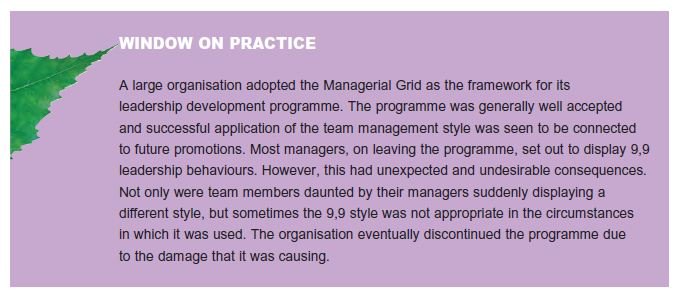Leadership Styles and Behaviours
There is a difference between the qualities of a leader and how they behave in practical situations. How organizations treat leaders differs on the basis of perspective. There are two theories- one is theory x, where employees are considered to be work-shy & it is assumed that they need constant monitoring and guidance. The other one is theory y, where employees are considered as responsible people who take responsibility of their work. It has often been found that American corporations follow the theory x and feel that their employees are work-shy & therefore they train the leaders to manage the workforce accordingly. How all the employees or workers would possibly react depends on which theory is applied on them by the managers.
Another approach was adopted by Mouton & Blakein 1964 to explain leadership behavior. This approach is known as managerial grid. Two characteristics of leadership behaviors are taken into consideration in the managerial grid. One is production concern, which include task-oriented behaviors like scheduling works, clarifying roles and measurements output. The second one is concerned with the behavior of people. This includes trust and a friendly work environment. According to Mouton and Blake, leaders can be graded on a scale of 9-point and then four-quality leadership grid can be formed, which has been shown below.

Links of Previous Main Topic:-
- Strategic aspects of performance
- Organisational performance
- Individual performance management
- Team performance
- Introduction leadership and motivation
- Leadership and management
Links of Next HR Management Topics:-
- What is the best way to lead leadership styles and behaviours
- Do leaders need different styles for different situations
- Do we really need heroes
- Leadership and motivation summary propositions and general discussion topics
- Managing absence and attendance
- Interactive skill 3 appraisal interviewing
- Strategic aspects of development
- Context competence competencies
- Learning and development





